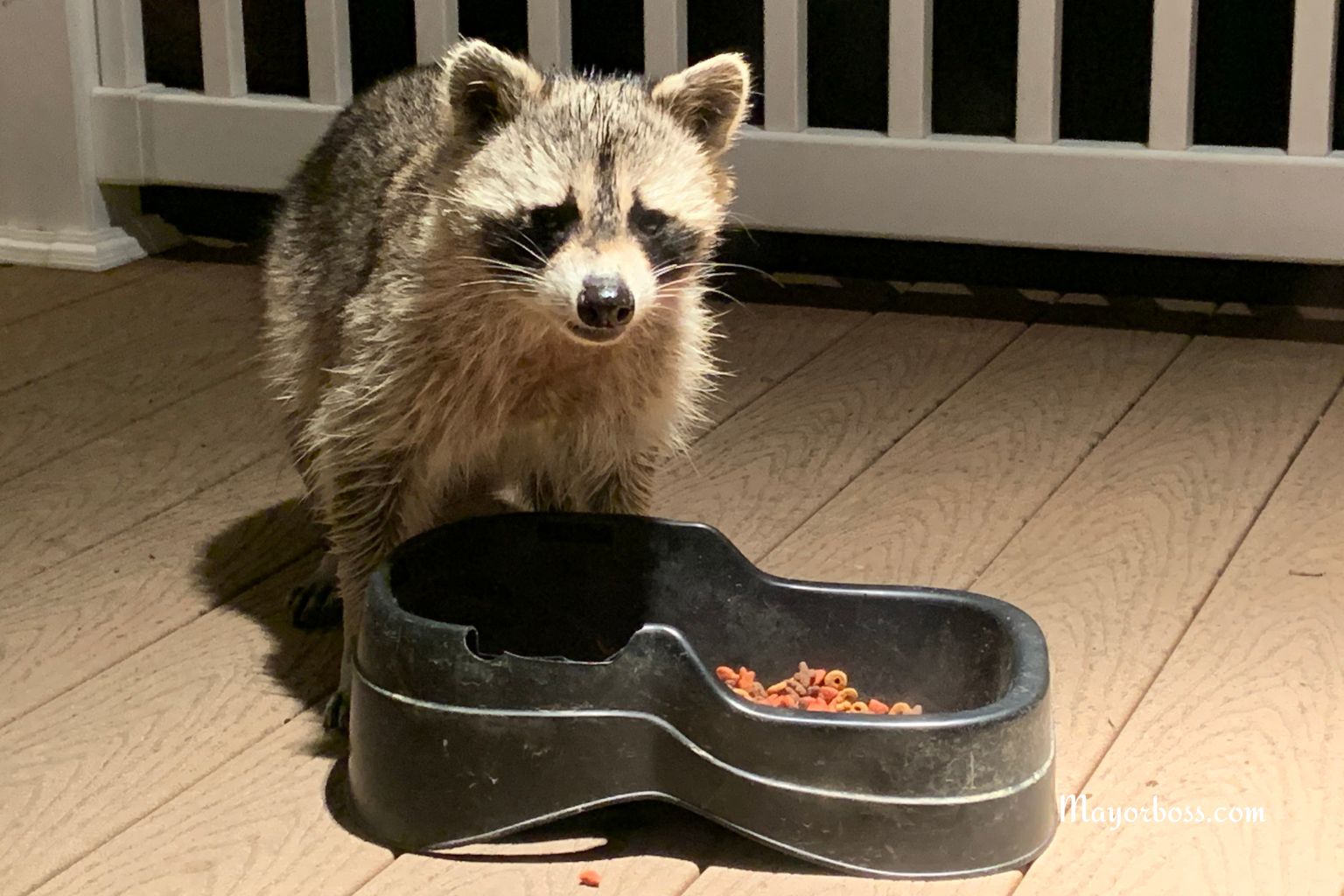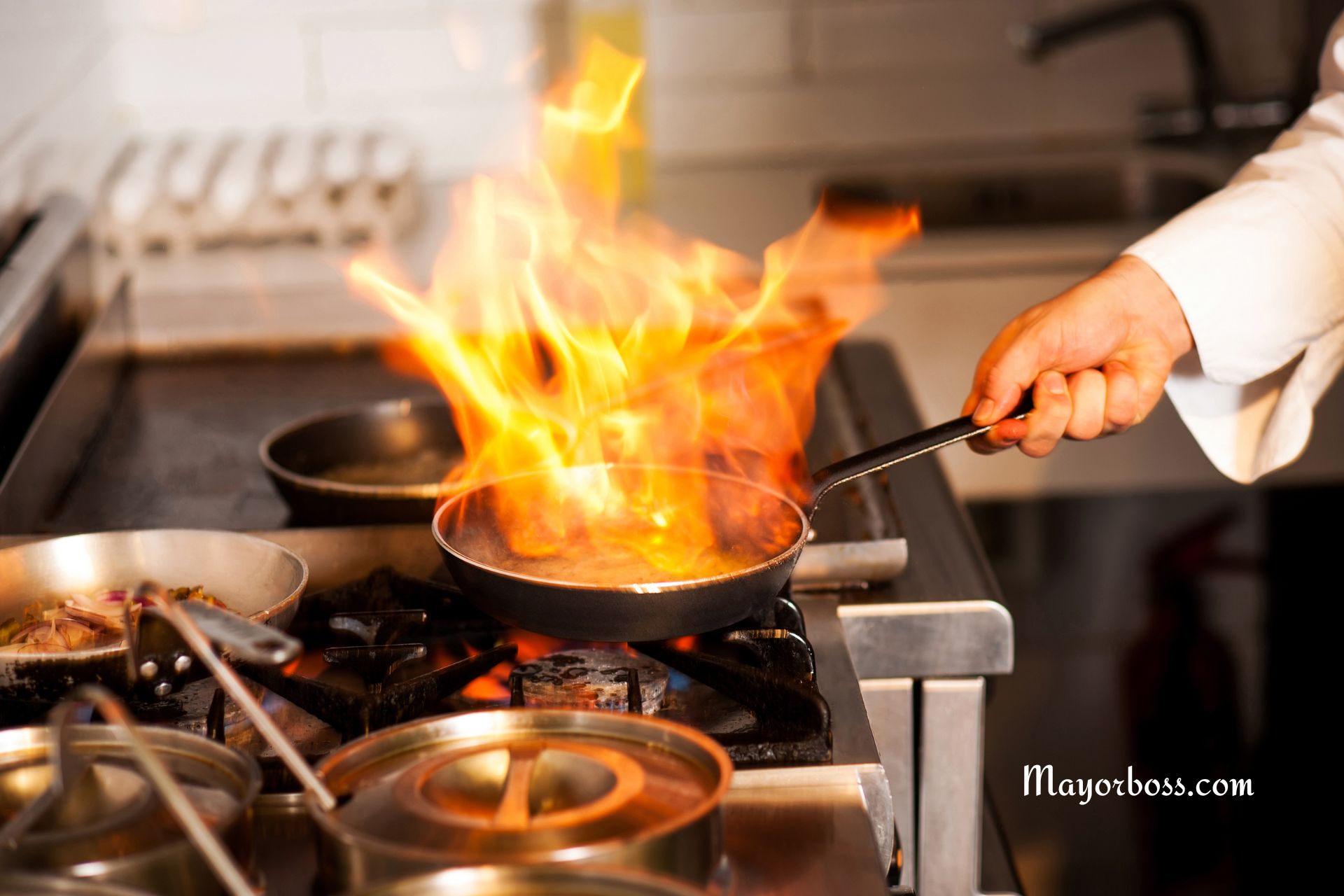10 Things You’re Leaving Outside That Attract Raccoons Fast (And How To Keep Them Away)
Raccoons are drawn to your yard by common items like pet food, garbage, bird feeders, and even fallen fruit. To keep them away, secure your trash, remove food sources, and make your property less inviting by cleaning up regularly and sealing entry points.

Why you see raccoons in your yard? If you notice raccoons visiting your yard, you’re not alone. These animals are curious, clever, and always searching for their next meal. They’re good at finding food and shelter—even in places you might not expect. Understanding what attracts raccoons is the first step to keeping them away.
1. Pet Food Left Outside
Leaving pet food on your porch or in your yard is like putting out a welcome sign for raccoons. They can smell kibble or wet food from far away. Even if you feed your pets outside just for a few minutes, any leftovers will attract raccoons at night.
How to fix it: Feed your pets indoors whenever possible. If you must feed them outside, pick up any leftovers right away and bring the bowls inside.
2. Unsecured Garbage Cans
Raccoons are notorious for digging through trash. Loose lids or bags left out overnight are easy targets. The scent of leftover food scraps, meat, or even fruit peels is enough to lure them in.
How to fix it: Use garbage cans with tight-fitting lids or locks. Consider storing trash indoors or in a secured shed until collection day.
3. Bird Feeders and Spilled Seeds
Bird seed is another favorite for raccoons. If your bird feeder spills or sits close to the ground, raccoons will help themselves after dark.
How to fix it: Hang feeders high up and away from fences or trees. Clean up spilled seed often. Bring feeders inside at night if raccoons become a problem.
4. Compost Piles
Composting is good for the environment, but an open compost pile full of food scraps is irresistible to raccoons. They love fruit peels, eggshells, and other leftovers.
How to fix it: Use a compost bin with a secure lid. Avoid adding meat, dairy, or cooked food scraps, which are especially attractive.
5. Fallen Fruit or Vegetables
If you have fruit trees or a garden, fallen produce will quickly bring raccoons around. They eat apples, plums, tomatoes, and almost anything sweet or ripe. Pick up fallen fruit and vegetables daily. Harvest ripe produce promptly to avoid attracting wildlife.
6. Open or Uncapped Chimneys
Raccoons are climbers and often look for shelter in open chimneys or attic vents. These dark, warm spaces are perfect nesting spots.
How to fix it: Install chimney caps and seal any attic vents or openings. Check your home’s exterior for gaps and repair them.
7. Pet Doors and Open Windows
Pet doors can give raccoons easy access to your home, especially if they smell food inside. Even open windows without screens can be an invitation. Lock pet doors at night. Make sure all windows have screens, and close them when you’re away or sleeping.
8. Leftover Barbecue or Grill Scraps
Grill drippings, greasy trays, and even dirty barbecue tools can attract raccoons. They have a keen sense of smell and are drawn to anything meaty or fatty.
How to fix it: Clean your grill after each use. Store grease containers and used utensils indoors or in tightly sealed bins.
9. Water Sources Like Pet Bowls or Ponds
Raccoons need water, just like other animals. Outdoor water bowls, birdbaths, and even decorative ponds can draw them in. Bring your pet’s water bowls inside at night. Use motion-activated sprinklers or fencing around ponds if raccoons are a recurring issue.
10. Outdoor Storage with Food or Trash
Sheds, garages, or patios where you keep animal feed, trash, or snacks can be easy pickings if not well-secured. Keep all food and trash in sealed containers. Make sure storage areas close tightly and don’t leave doors open overnight.
How to Keep Raccoons Away for Good
Preventing raccoons starts with removing what draws them in. Here are some general tips to help:
- Keep food sources out of reach: Raccoons rely on their sense of smell. Take away easy meals, and you make your yard much less interesting to them.
- Seal entry points: Inspect your home for gaps, broken vents, or holes. Raccoons are skilled climbers and can fit through surprisingly small spaces.
- Use deterrents: Motion-activated lights, sprinklers, or ultrasonic devices can scare raccoons off before they get too comfortable.
- Maintain your yard: Regularly clean up fallen fruit, birdseed, and food scraps. The cleaner your space, the less likely raccoons will stick around.
Frequently Asked Questions
1. Why do raccoons keep coming back even after I clean up?
Raccoons have good memories and may return to spots where they once found food. Consistency is key—keep up with cleaning and securing food sources.
2. Are raccoons dangerous to people or pets?
Raccoons generally avoid people, but they can bite if cornered and may carry diseases such as rabies. Avoid direct contact and keep pets indoors at night.
3. What should I do if I find a raccoon in my house or attic?
Contact a local wildlife removal expert. Do not try to remove a raccoon yourself, as they can become aggressive when frightened.
4. Can raccoons open doors or containers?
Yes, raccoons have nimble paws and can open simple latches, doors, and containers. Use locking lids and heavy-duty fasteners if needed.
5. Will removing food attractants guarantee raccoons stay away?
While it greatly reduces the chances, some raccoons may still visit out of curiosity. Maintaining deterrents and keeping your property clean offers the best protection.






